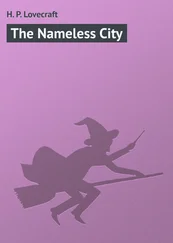Maurus Jokai - The Nameless Castle
Здесь есть возможность читать онлайн «Maurus Jokai - The Nameless Castle» весь текст электронной книги совершенно бесплатно (целиком полную версию без сокращений). В некоторых случаях можно слушать аудио, скачать через торрент в формате fb2 и присутствует краткое содержание. Город: New York, Год выпуска: 1898, Издательство: Doubleday, Page & Company, Жанр: Историческая проза, на английском языке. Описание произведения, (предисловие) а так же отзывы посетителей доступны на портале библиотеки ЛибКат.
- Название:The Nameless Castle
- Автор:
- Издательство:Doubleday, Page & Company
- Жанр:
- Год:1898
- Город:New York
- ISBN:нет данных
- Рейтинг книги:4 / 5. Голосов: 1
-
Избранное:Добавить в избранное
- Отзывы:
-
Ваша оценка:
- 80
- 1
- 2
- 3
- 4
- 5
The Nameless Castle: краткое содержание, описание и аннотация
Предлагаем к чтению аннотацию, описание, краткое содержание или предисловие (зависит от того, что написал сам автор книги «The Nameless Castle»). Если вы не нашли необходимую информацию о книге — напишите в комментариях, мы постараемся отыскать её.
The Nameless Castle — читать онлайн бесплатно полную книгу (весь текст) целиком
Ниже представлен текст книги, разбитый по страницам. Система сохранения места последней прочитанной страницы, позволяет с удобством читать онлайн бесплатно книгу «The Nameless Castle», без необходимости каждый раз заново искать на чём Вы остановились. Поставьте закладку, и сможете в любой момент перейти на страницу, на которой закончили чтение.
Интервал:
Закладка:
A bitter smile wreathed the lady’s lips as she replied: “Could any wound that I might receive increase the burden on my heart?” She laughed harshly, then asked suddenly: “Perhaps you are afraid the colonel will think I am the mysterious lady of the Nameless Castle?”
Count Vavel’s face reddened to the roots of his hair.
Again the lady laughed, then said apologetically: “Pardon me, but the idea amused me. But, to return to Colonel Barthelmy, he is going very shortly to Italy with his regiment; therefore, I need not care what fables he thinks of me—or repeats. The few persons whose opinion I care for will not believe him; as for the others—pah! Come, your hand on it! Let us perpetrate this joke. If I am willing to run the risk, you surely need not hesitate.”
And yet he hesitated.
“Don’t speak of this plan of yours as a mischievous trick, baroness,” he said earnestly. “It is a great, a noble sacrifice—so great, indeed, that living woman could not perform a greater—to be willing to blush with shame while innocent. She who blushes for her love does not suffer; but to flush with shame out of friendship must be a torture like that endured by martyrs.”
“Very well, then; let it be a sacrifice—as you will! I am a willing victim! I owe you a debt of gratitude; I want to pay it. Now go and order the carriage; I will wait here for you.”
Every drop of blood in his body rebelled against his accepting this offer. A woman rescue a strong man from a threatened danger! And at what a risk!
“Well,” a trifle impatiently exclaimed the baroness, as he still lingered, “aren’t you going to fetch your cloak? I am ready for the drive.”
Without another word the count turned and strode toward the castle.
Marie was satisfied with the excuse he made for not taking her with him as usual: he said he had urgent business in the neighboring village, and would have to drive there alone.
Then he ordered Henry to harness the horses to the carriage, and drive down to the gate, where he would await him.
He found the baroness waiting for him where he had left her.
“Well,” she began, when he came near enough to hear her, “have you decided to take me with you?”
“No.”
“Then you are going to take the lady?”
“No.”
“Not? Then who is going with you?”
“These two pistols,” replied the count, flinging back his cloak and revealing the weapons thrust into his pocket. “With these two companions I am going to meet the gentleman who is so determined to see the face of the veiled lady. I shall show him a lady whose face is not a subject of gossip.”
The baroness uttered a cry of terror, and seized Count Vavel’s hand.
“No, no; you shall not go alone. Listen. I was prepared for just such a decision on your part, so I wrote this letter. If you persist in going alone to meet the colonel, I shall hurry back to the manor, send my groom on the swiftest horse I own with this letter to Colonel Barthelmy. Read it.”
She unfolded the letter she had taken from her pocket, and held it so that Count Vavel might read, without taking it in his hands:
“HERR COLONEL: You need not seek Mme. Ange Barthelmy at the Nameless Castle. The veiled lady seen in company with Count Vavel is
“B. KATHARINA LANDSKNECHTSSCHILD.”
In speechless amazement Count Vavel looked down at the baroness, who calmly folded the letter and returned it to her pocket.
“Now you may go if you like,” she said coolly, “and I, too, shall do as I like! The colonel will then have written proof to justify him in dragging my name in the dust!”
The count gazed long and earnestly into the lovely face turned defiantly toward him. What was said by those glowing eyes, what was expressed by those lips trembling with excitement, could not be mere sport. There is only one name for the emotion which urges a woman to risk so much for a man; and if Count Vavel guessed the name, then there was nothing for him to do but offer his arm to the lady and say:
“Come, baroness, we will go together.”
When the count assisted his veiled companion into the carriage, and took his seat by her side, not even Henry could have told that it was not his young mistress from the castle who was going to drive, as usual, with her guardian.
It was with a singular feeling that Count Vavel looked at the woman beside him, to whom he was bound for one hour by the strongest, most dangerous of ties. Only for one hour! For this one hour the woman belonged to him as wholly, as entirely as the soul belongs to the living human being. And afterward? Afterward she would be no more to him than is the vanished soul to the dead human being.
The carriage had arrived at the boundary of the neighboring village, where the usual turn was made for the homeward drive, and they had not yet seen any one. Had Colonel Barthelmy’s words been merely an idle threat?
Henry knew that he was not to drive beyond this point; he mechanically turned the horses’ heads in the homeward direction, as he had done every day for years.
On the return drive the carriage always stopped at the edge of the forest, where a shaded path led through the dense shrubbery to a cleared space some distance from the highway. This was the spot for their daily promenade.
The count and his companion had gone but a short distance along the path when they saw coming toward them three men in uniform. They were cavalry officers. The two in the rear had on white cloaks; the one in front was without, an outer garment—merely his close-fitting uniform coal.
“That is Barthelmy,” whispered the baroness, pressing the arm on which she was leaning.
The count’s expression of calm indifference did not change. He walked with a firm step toward the approaching officers.
Very soon they stood face to face.
The colonel was a tall, distinguished-looking man; he carried his head well upright, and every movement spoke of haughty self-confidence and pride.
“Herr Count Vavel, I believe?” he began, halting in front of Ludwig and his companion. “Allow me to introduce myself; I am Colonel Vicomte Leon Barthelmy.”
Count Vavel murmured something which gave the colonel to understand that he (the count) was very glad to learn the gentleman’s name.
“I have long desired to make your acquaintance,” continued the colonel (his companions had halted several paces distant). “I was so unfortunate as not to find you at home the three calls I made at your castle. Now, however, I shall take this opportunity to say to you what I wanted to say then. First, however, let me introduce my friends,”—waving his hand toward the two officers,—“Captain Kriegeisen and Lieutenant Zagodics, of Emperor Alexander’s dragoons.”
Count Vavel again gave utterance to his pleasure on making the acquaintance of the colonel’s friends. Then he said courteously:
“In what way can I serve you, Herr Colonel?”
“In a very simple manner, Herr Count,” responded the colonel. “I have had the peculiar misfortune which sometimes overtakes a married man; my wife deceived me, and ran away with her lover, whom I do not even know. As mine is not one of those phlegmatic natures which can meekly tolerate such an indignity, I am searching for the fugitives—for what purpose I fancy you can guess. For four years my quest has been fruitless; I have been unable to find a trace of the guilty pair. A lucky chance at last led me to this secluded corner of the earth, and here I learned that—but, to be brief, Herr Count, I owe it to my heart and to my honor to ask you this question: Is not this lady by your side, who is always closely veiled, Ange Barthelmy, my wife?”
“Herr Vicomte Leon de Barthelmy,” calmly replied Count Vavel, “I give you my word of honor as a cavalier that this lady never was your wife.”
Читать дальшеИнтервал:
Закладка:
Похожие книги на «The Nameless Castle»
Представляем Вашему вниманию похожие книги на «The Nameless Castle» списком для выбора. Мы отобрали схожую по названию и смыслу литературу в надежде предоставить читателям больше вариантов отыскать новые, интересные, ещё непрочитанные произведения.
Обсуждение, отзывы о книге «The Nameless Castle» и просто собственные мнения читателей. Оставьте ваши комментарии, напишите, что Вы думаете о произведении, его смысле или главных героях. Укажите что конкретно понравилось, а что нет, и почему Вы так считаете.












